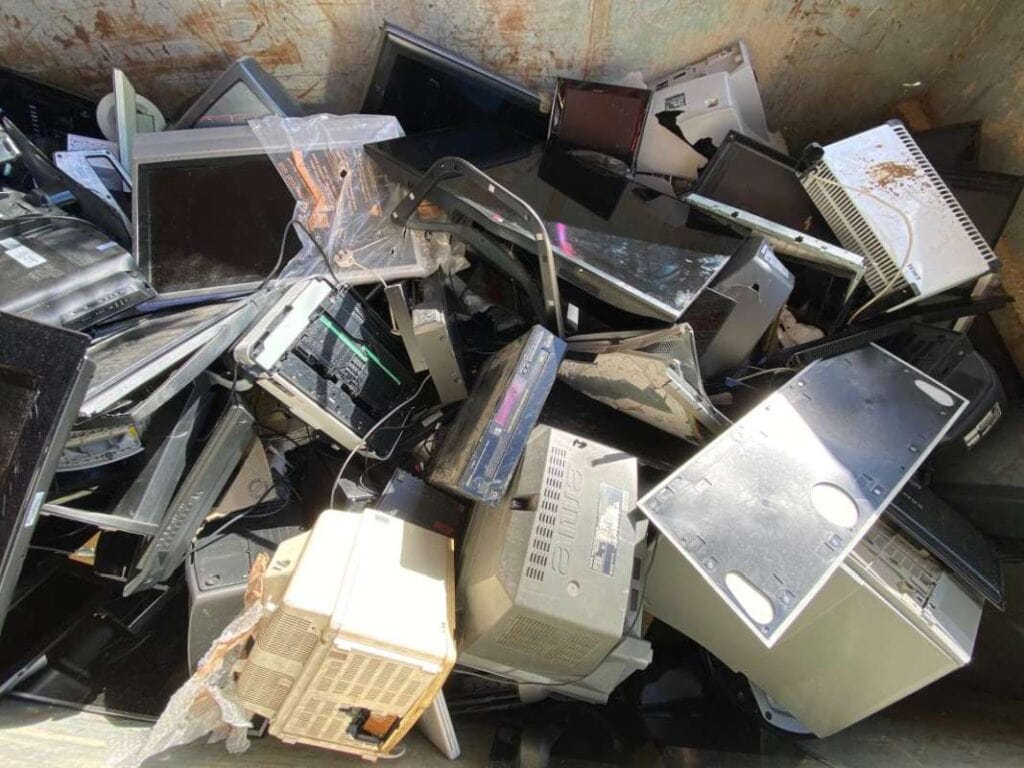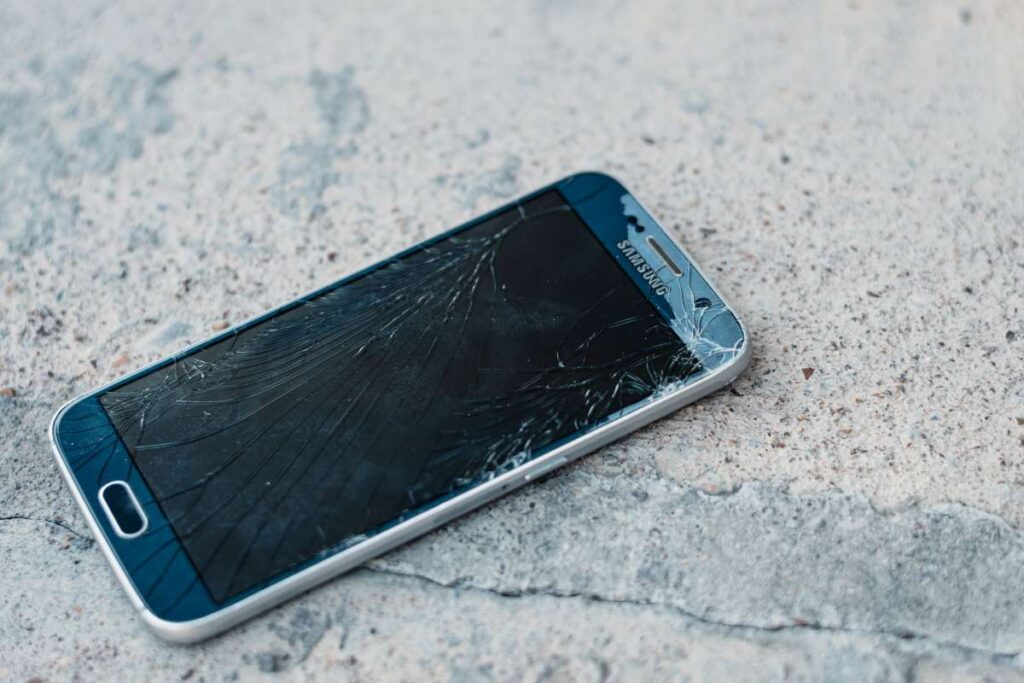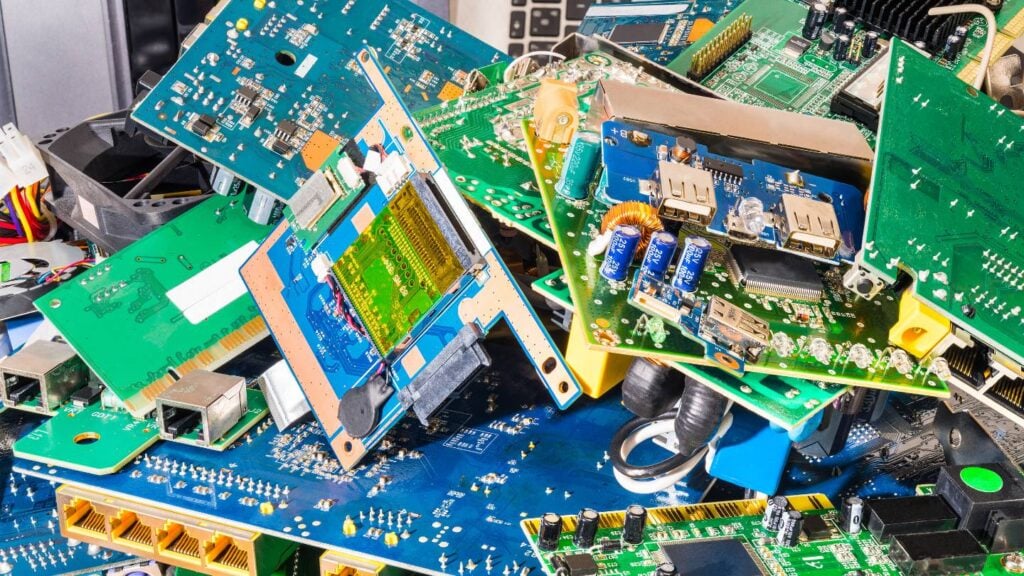In addition to being required by law, proper disposal of automotive waste is a crucial responsibility for preventing pollution and keeping people safe. Used oil, batteries, and tyres are all examples of automotive waste that, if not disposed of properly, can pose serious threats to local ecosystems and human health.
This blog is meant to serve as a helpful resource for those seeking information on properly discarding old cars. By adhering to these guidelines, we can help protect the environment for future generations while also reducing our own negative impact.
How To Properly Recycle And Dispose Of Automotive Chemicals
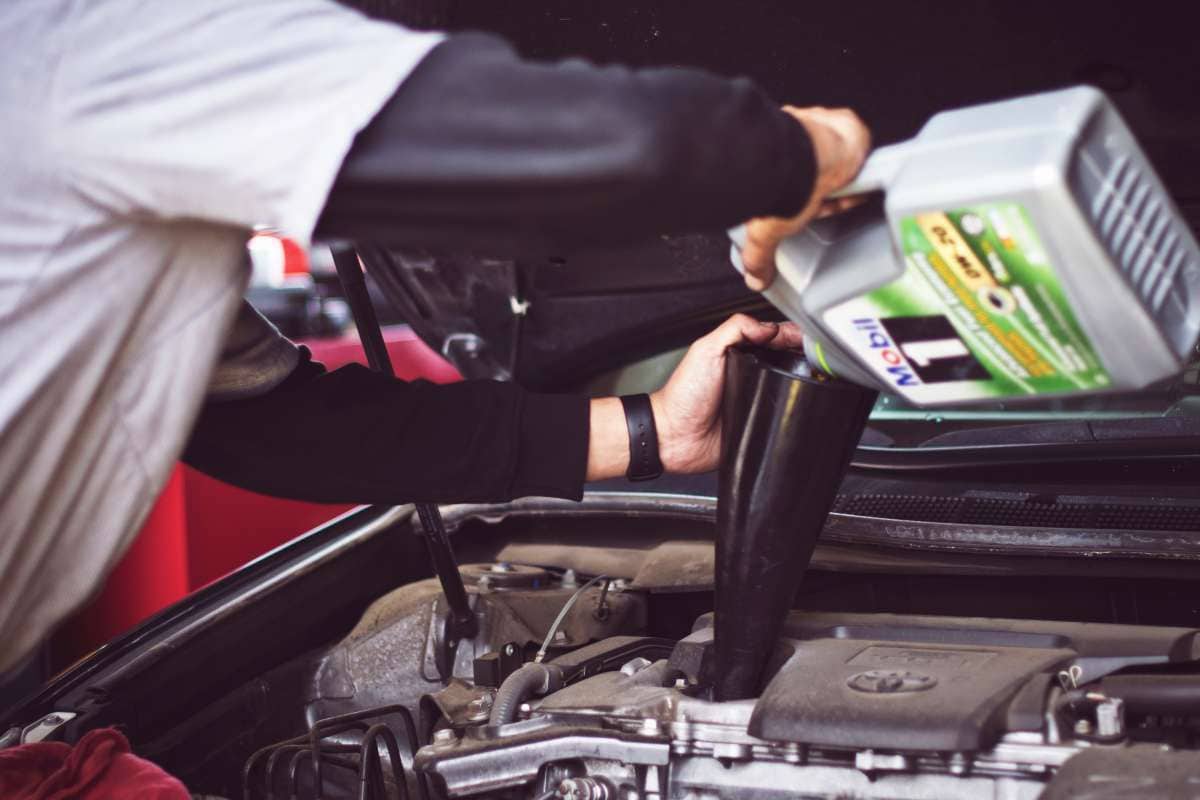
Oil slick
Oil and oil filters must be changed at regular intervals in all internal combustion engines. When these adjustments are multiplied by the number of cars and trucks on the road, the enormous quantity of oil involved becomes clear. The good news is that recycling motor oil has never been simpler. Before even the first ounce of oil is drained, proper used oil disposal must begin. Get a sealed container made specifically for used oil. After an oil change, the old motor oil can be brought in for recycling. Most places that sell auto parts will also sell catch containers.
The oil that somehow manages to escape the catch container is another good candidate for a large drip tray. Used oil should also include the oil filter. In order to teach car owners how to properly dispose of used oil, some city recycling programmes provide used oil containers for use with kerbside recycling. It's best to buy new oil from retailers that also buy back used oil.
Used oil should never be combined with other types of automotive fluids. Used oil is recycled by being refined into new products like lubricants, heating oil, and more motor oil.
Keep your cool
Both ethylene and propylene glycols, which are found in antifreeze for car engines, are toxic to animals and humans. To pets and children who don't know better, these chemicals all taste like candy. When performing maintenance on the cooling system or other engine components, it is often necessary to drain the engine coolant. The most efficient method of recycling engine coolant entails reintroducing it to the cooling system.
Get an oil-style catch can to use exclusively for this purpose. To avoid any mix-ups, the containers are all a different colour. Use a ball-type tester or something similar to examine the coolant. After repairs have been made, the radiator filling neck can be refilled with coolant if the fluid passes inspection.
The availability of antifreeze recycling centres is expanding, but they are still in short supply in some areas. If you need to know if dumping engine coolant into the sewer is allowed, check the recycling antifreeze laws in your area. Antifreeze typically breaks down safely in municipal sewage treatment plants. Antifreeze should never be poured onto the ground or flushed down a drain. The pipe must be connected to a sewage treatment facility.
Across the shelf
All automotive fluids, not just oil and coolant, should be disposed of in a special way or recycled. Local disposal laws vary, and specific requirements change depending on the fluid in question. Disposal of transmission fluid, for instance, can differ greatly from disposal of coolant. This is why you should never combine different types of motor oil when disposing of it.
Inflammable and toxic brake fluid is just one example. It's recommended that discarded brake fluid be stored in a sealed, designated container until it can be recycled or otherwise disposed of properly. Disposal of brake fluid is representative of the general practise of disposing of automotive fluids.
Properly Disposing Of Car Waste
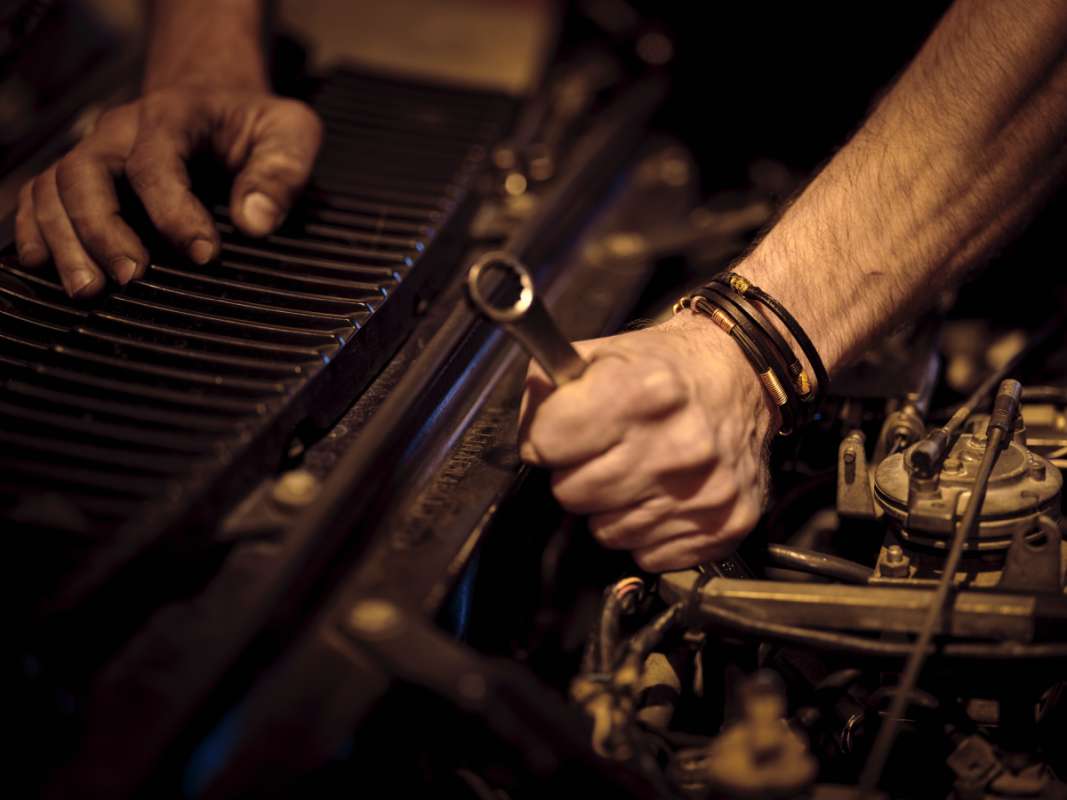
Motor Oil
One of the most common causes of oil pollution is the improper disposal of used motor oil. The contaminants in motor oil seep into the ground and surface water after being dumped in a backyard, in the trash, or down a storm drain. The heavy metals in your engine can be collected in your motor oil, and an acre's worth of slick can be created from just one pint.
Oil doesn't wear out; it just gets dirty, so recycling it is the best option for motor oil disposal. First, you'll want to drain your oil and then store it in a container with a tight-fitting lid, like a metal can or plastic jug (make sure the can or jug isn't already contaminated with other products). Many gas stations and community recycling centres will then accept the used oil.
Batteries
Batteries used in automobiles contain heavy metals and other toxic elements that can leach into the ground and pollute groundwater. Thankfully, recycling is an option for the disposal of virtually all lead-acid car batteries. Many auto repair shops will accept your old battery for recycling at no additional cost to you when you purchase a new battery for your vehicle. Before recycling, keep the battery upright in a container that won't leak and can withstand acid.
Antifreeze
Antifreeze is extremely poisonous and toxic and if swallowed can be fatal. Because of its potential sweetness, both animals and children need to be protected from it. If you're doing it yourself, flush the system with distilled water for a few minutes after draining the old antifreeze. Then you should empty the water and replace it with new cooling liquid. Keep used antifreeze in the original container so it can be recycled and reused after being cleaned.
Gasoline
Keep gasoline in an approved container out of the reach of children and pets, and keep it out of the sun and away from any heat sources to prevent it from igniting. Don't forget that old gas can't be used as a solvent, paint thinner, or weed killer. Take the gas to the nearest hazardous waste facility if you suspect it may be contaminated.
Brake and Transmission Fluid
Because of their corrosive and toxic properties, brake and transmission fluid must be kept in separate, leak-proof containers. Take the used fluids to a service station or hazardous waste facility.
Tires
Toxins and petroleum products from improperly discarded tyres can seep into the ground and pollute water sources. While old tyres can be recycled for energy or soundproofing purposes, most tyres without tread have little value. Keep used tyres in a dry, outside location away from the elements, but be aware that tyre storage capacity may be restricted by local ordinances. Tyre shops and service centres are obligated to recycle customers' old tyres if they are replaced, although this service may come at a small cost to customers who do not intend to purchase new tyres.
Improper Waste Disposal Affects The Environment

Land Pollution
Pollution of the land occurs whenever trash is dumped on unusable areas of land. Because of decay or time, the contents of this trash pile leak into the ground around it. Because of this, the soil and the surrounding area become contaminated and hazardous to human and animal health.
Water Pollution
Any garbage that doesn't make it to a dump or recycling centre eventually ends up in the water supply. It eventually decomposes in the ocean, where it contaminates the water and eventually kills off the marine life there. This procedure increases the water's toxicity, making both freshwater and any body of water unsafe for human consumption and swimming. Pollutants stay put and can taint other water supplies due to water's mobility and solubility.
Air Pollution
Air pollution is a serious problem all over the world, so it's important to grasp how improper waste management contributes to this problem. Glasshouse gases accumulate in the atmosphere and cause dramatic changes in global climate, according to the most fundamental understanding of air pollution. These issues are exacerbated by the release of excess gases into the atmosphere, which is facilitated by improper waste disposal. Gases such as methane are produced during waste breakdown and contribute significantly to global warming.
Climate Change
The contribution and impact of pollution on the global climate is a major issue. The ozone layer is depleted in part due to the gases produced by waste. The resulting increase in sea level threatens billions of people's homes and natural habitats and worsens the weather.
Extreme Weather
The frequency of extreme weather and natural disasters has also increased gradually due to climate change. Extreme weather events like tornadoes and floods have become more common as a result of global warming. Hurricanes, too, have become more common as a result of global warming.
Disease
Major diseases can thrive in untreated garbage piles. Waste dumps and polluted water are ideal breeding grounds for all kinds of nasty bacteria and parasites. Improperly processed waste is terrible for the health of all living things, including humans, animals, and plants.
Animal and Marine Death
Animals on land and in the water are just as susceptible to the dangers of garbage as they are to plants. Many marine animals, such as sea turtles and fish, have been killed by garbage dumped into the ocean or consumed by wildlife as food. Every day, improper waste disposal causes irreparable harm to ecosystems all over the world, resulting in the extinction of countless species.
Loss of Habitats
Every species of animal is adaptable to a wide variety of habitats. This explains why certain species are restricted to certain regions. However, global climate change, which is exacerbated by trash, reduces the size of animal habitats. When their habitats shrink, animals like polar bears can no longer make the long journeys necessary to survive, and they eventually go extinct.
Lower Biodiversity
As species go extinct and crops fail, global biodiversity gradually declines. This is harmful to ecosystems because having less species diversity makes them more vulnerable to extinction events. Diseases can spread more quickly between populations of the same species, and fewer species overall are able to withstand environmental shifts.
Radiation and Hazardous Materials
There is a general lack of awareness about the dangers of radioactive waste despite the fact that improper handling can cause radiation poisoning in the areas surrounding the waste. If businesses don't hire an industrial disposal service, hazardous materials and other contaminants could make their way into residential areas.
“Dead” Zones
The term "dead" space is rarely used to describe places like landfills, but that is exactly what they are. The larger and more numerous these fills become, the more trash and waste are deposited within them. These make areas unsuitable for anything besides trash and garbage, so they should be avoided at all costs.
Human Impact
It's easy to see how this affects everyone, what with the diseases and climate change that improper waste processing causes. Mishandling of waste is contributing to environmental degradation, so eliminating practises that create unnecessary waste will save lives and help maintain a liveable planet.
Many people find it difficult to commit to waste prevention and proper waste management. There are those who think it's hopeless and it's already too late. However, even if only a few people make the effort to change their waste disposal habits, that change could prevent unnecessary deaths and suffering in the future. It also improves the odds that a radical solution will emerge and be implemented. Make sure you're helping with waste management rather than hastening the planet's demise.
FAQs About Rubbish Removal
Automotive waste refers to any material that is generated as a result of using a vehicle, such as used motor oil, brake fluid, antifreeze, and old batteries.
Improper disposal of automotive waste can have negative environmental impacts, including soil and water contamination. Many automotive waste materials also contain hazardous chemicals that can be harmful to human health.
Used motor oil should be taken to a designated collection center or automotive shop that accepts it. Do not dispose of used motor oil by pouring it down the drain, on the ground, or in the trash.
Yes, old car batteries can be recycled. Many auto parts stores, scrap metal yards, and battery retailers will accept them for recycling.
Old tires should be taken to a designated recycling center or tire retailer that accepts them. Do not dispose of tires in the trash or by burning them.
Conclusion
When it comes to protecting the environment and keeping people safe, proper disposal of automotive waste is crucial. If you want to recycle your old oil, batteries, or tyres, you'll need a special sealed container for spent oil. If you're looking to buy fresh oil, look for stores that also buy back used oil. Neither ethylene nor propylene glycols are compatible with other motor vehicle fluids because of their toxicity to animals and humans. The most effective way of recycling engine coolant is by reintroducing it to the cooling system.
Never throw antifreeze onto the ground or down a drain; instead, use a catch container designed for oil and reserve it solely for this use. Proper disposal of wasted motor oil is the greatest solution for oil contamination, and this holds true for all vehicle fluids. Gas stations and community recycling centres will accept spent oil, and you should keep it in a container with a secure lid. Automobile batteries are a major source of groundwater contamination because of the heavy metals and other harmful materials they contain. Almost all lead-acid car batteries can be recycled, but only if they are stored upright in an acid-resistant container.
Replace the antifreeze with fresh cooling liquid and flush the system with distilled water. Store gasoline in a child- and pet-safe container, and keep brake and transmission fluid in their own, leak-proof containers. It's important to store tyres in a dry, outdoor location out of the weather, because inappropriate garbage disposal can have an impact on the natural world. The inappropriate disposal of trash leads to water contamination, air pollution, climate change, extreme weather, sickness, and the loss of animals and marine life. Decomposing trash in the ocean contaminates the water and kills marine life, which leads to water pollution.
Excess gases released into the atmosphere cause air pollution and contribute to climate change. The thinning of the ozone layer is a major contributor to climate change, which in turn causes higher sea levels and more extreme weather. Bacteria and parasites in untreated trash can spread disease, and the loss of species is a leading cause of death for marine life and other animals. Trash contributes to global warming, which in turn shrinks animal habitats and hastens the extinction of some species. Improper waste management results in decreased biodiversity, the release of radioactive and toxic substances, and the formation of "dead" zones.
Diseases and climate change brought on by incorrect waste management also have an effect on humans. It is crucial to commit to waste avoidance and appropriate waste management in order to avert future needless lives and suffering.
Content Summary
- Proper disposal of automotive waste is required by law and essential for preventing pollution and ensuring safety.
- Used oil, batteries, and tires are examples of automotive waste that can pose serious threats if not disposed of properly.
- The blog serves as a helpful resource for information on properly discarding old cars and reducing negative impact.
- Recycling used motor oil has never been simpler and should be done in sealed containers made for that purpose.
- Engine coolant should be recycled by reintroducing it to the cooling system after maintenance.
- Antifreeze recycling centres are expanding, but availability may vary in different areas.
- All automotive fluids, including brake fluid and transmission fluid, should be disposed of or recycled properly.
- Improper disposal of motor oil causes oil pollution, contaminating the ground and surface water.
- Lead-acid car batteries contain toxic elements and should be recycled at auto repair shops.
- Antifreeze is poisonous and should be flushed and replaced with a new coolant. Used antifreeze should be kept in the original container for recycling.
- Gasoline should be stored in approved containers away from heat sources and taken to a hazardous waste facility for disposal.
- Brake and transmission fluid should be kept in separate, leak-proof containers and taken to a service station or hazardous waste facility.
- Improperly discarded tires can release toxins and petroleum products into the ground, polluting water sources.
- Land pollution occurs when the trash is dumped in unusable areas, contaminating the soil and posing health risks.
- Garbage that doesn't reach dumps or recycling centres can end up in the water supply, polluting oceans and freshwater sources.
- Improper waste disposal contributes to air pollution and the accumulation of greenhouse gases in the atmosphere.
- Pollution from waste affects the global climate, depletes the ozone layer, and leads to extreme weather events.
- The disease can thrive in untreated garbage piles, posing health risks to humans, animals, and plants.
- Improper waste disposal causes the death of animals and marine life, leading to ecosystem damage and species extinction.
- Trash and global climate change reduce animal habitats, making species vulnerable and leading to extinction.
- Lower biodiversity due to extinction events and environmental shifts affects ecosystem stability.
- Improper handling of hazardous materials and radioactive waste can lead to contamination and radiation poisoning.
- "Dead" zones, such as landfills, become unsuitable for anything other than trash and garbage.
- Improper waste processing contributes to environmental degradation and negatively impacts human lives.
- Committing to waste prevention and proper waste management can save lives and contribute to a livable planet.
- Even small changes in waste disposal habits can make a significant difference.
- Waste management helps prevent unnecessary deaths, suffering, and environmental damage.
- The content emphasises the importance of proper disposal to protect the environment and future generations.
- Recycling and responsible disposal options are highlighted throughout the text.
- The article encourages individuals to be proactive in waste management to avoid hastening the planet's demise.

